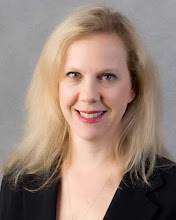
Clark Gilder, CEO of Global Standard Financial, Inc. and investor at Atlanta Technology Angels, recently shared insight on Bold Ventures Radio about the Atlanta business market from a funding standpoint, what Atlanta's greatest small business challenges are, how Atlanta differs from places like Silicone Valley and what angel investors are looking for when considering funding businesses in Atlanta.
Not only did I find his insight helpful but it also was very eye-opening about the potential we have in Atlanta. Read on for more details.
BVR: Where does the Atlanta market stand from a funding/technology/entrepreneurial perspective?
CG: Atlanta has a great pool of tech talent because of all the education we have in the area...GA Tech, Emory, Georgia State and even the University of Georgia nearby. In addition, we have groups like TAG and ATDC who really are helping guide technology development in the city. The missing ingredient is the capital. Some investors still are hesitant about entering the Atlanta market, particularly in funding seed capital for the small business start-ups.
Entrepreneurs in Atlanta have great ideas but still need help getting to market. One key way to get to market quicker is to "fail fast" - test your idea, figure out and correct your problem before approaching investors for major funding. Companies like Sixthman used their earlier failures to their competitive advantage and now are blowing the competition out of the water, so to speak. (See later blog about CEO Andy Levine's interview about Sixthman.)
BVR: What are the biggest challenges for the Atlanta start-up market?
CG: According to Clark, one of the biggest problems Atlanta's technology entrepreneurs and businesses face is traffic (he noted with a small laugh). Often businesses are located in one area, but the talent may live or study in another part of town. It's difficult to convince the best of the best to move. One way around this (and you'd be very successful if you figured it out) is to create networking hubs around the city where people within a certain industry can live and work.
Another major challenge is lack of support from our legislators. Atlanta is totally behind the tax-favorable curve for small businesses and start-ups. Currently there are no tax credits for early-stage risk capital, nor are there tax incentives for outside VCs to bring money into Atlanta. Write to your state legislator or to the governor to ignite this needed change and to get Atlanta up to speed with other flourishing markets.
BVR: What are other differences, besides the legislative challenge, between Atlanta and technology-based markets like Silicone Valley?
CG: "Risk-taking is desired and revered in SV, Clark said," but that climate doesn't necessarily exist in Atlanta. We have a tremendous foundation here, but we have to learn it's ok to try and fail, as long as we learn from our mistakes and try again...making it worth it. That's how innovation occurs.
On the plus side, Atlanta has a much-more diversified economy than SV, so there's not as much boom and bust. Again, this should foster a culture of trying and innovating. Entrepreneurs need to take advantage of the biotech, medical, music, movie and media industries that are thriving here. Apply technology to these markets and watch the sparks fly.
BVR: What are angel investors, like those at Atlanta Technology Angels, looking for when considering investing?
CG: People are the most crucial element to any business. Investors want to see a company has a quality team in place, or at least the realistic ability to put it in place, in order to create and produce the best product.
Investors also obviously are looking at the product itself. They want to know the market exists for that product and how long it will take for the product to bring in money. Angels and other investors want to know what the burn curve is and to see a business plan and a proven idea through market research. ATA, in particular, is looking for the whole life cycle of the business. What's the goal - to build a lifetime business or a wealth building business? If the latter, Clark says they want to know what the exit strategy is, who the target aquirer might be, and what the end result is.









No comments:
Post a Comment